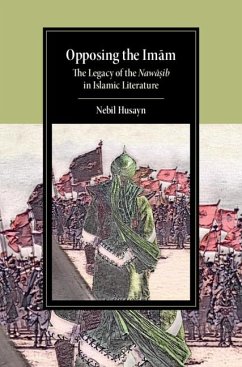
Agents of the Hidden Imam (eBook, ePUB)
Forging Twelver Shi'ism, 850-950 CE
Versandkostenfrei!
Sofort per Download lieferbar
55,95 €
inkl. MwSt.
Weitere Ausgaben:

PAYBACK Punkte
28 °P sammeln!
In 874 CE, the eleventh Imam died, and the Imami community splintered. The institutions of the Imamate were maintained by the dead Imam's agents, who asserted they were in contact with a hidden twelfth Imam. This was the beginning of 'Twelver' ShiE ism. Edmund Hayes provides an innovative approach to exploring early ShiE ism, moving beyond doctrinal history to provide an analysis of the socio-political processes leading to the canonisation of the Occultation of the twelfth Imam. Hayes shows how these agents cemented their authority by reproducing the physical signs of the Imamate, including pr...
In 874 CE, the eleventh Imam died, and the Imami community splintered. The institutions of the Imamate were maintained by the dead Imam's agents, who asserted they were in contact with a hidden twelfth Imam. This was the beginning of 'Twelver' ShiE ism. Edmund Hayes provides an innovative approach to exploring early ShiE ism, moving beyond doctrinal history to provide an analysis of the socio-political processes leading to the canonisation of the Occultation of the twelfth Imam. Hayes shows how these agents cemented their authority by reproducing the physical signs of the Imamate, including protocols of succession, letters and the alm taxes. Four of these agents were ultimately canonised as "e;envoys"e; but traces of earlier conceptions of authority remain embedded in the earliest reports. Hayes dissects the complex and contradictory Occultation narratives to show how, amidst the claims of numerous actors, the institutional positioning of the envoys allowed them to assert a quasi-Imamic authority in the absence of an Imam.
Dieser Download kann aus rechtlichen Gründen nur mit Rechnungsadresse in A, B, BG, CY, CZ, D, DK, EW, E, FIN, F, GR, HR, H, IRL, I, LT, L, LR, M, NL, PL, P, R, S, SLO, SK ausgeliefert werden.













